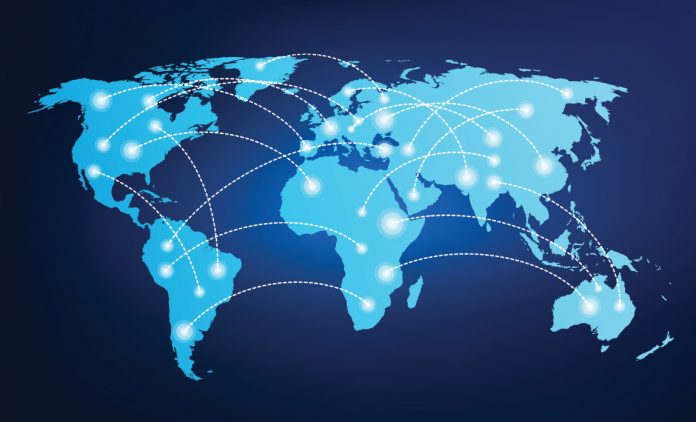Date of webinar: 14/05/2020
Date: 08/09/2020
This summary is written by Harshini Naidu, Faculty of Law, Maharaja Sayajirao University of Baroda.
The Guest Speaker:
Deepak Raju is a Senior Associate (Global Arbitration, Trade and Advocacy) at Sidley Austin LLP. He has an experience of representing many States in litigation. He is an alumnus of the National University of Judicial Sciences, Kolkata and has completed his LLM focused in Public International Law from Cambridge University.
The Host:
Ramanuj Mukherjee is the CEO of LawSikho and the Co-founder of iPleaders. He is an alumnus of the National University of Judicial Sciences, Kolkata. His previous work experience includes being a part of the Private Equity and M&A Team at Trilegal, Mumbai.
Table of Contents
What kind of disputes are addressed by the World Trade Organization?
Disputes between countries relating to International Trade are addressed by the World Trade Organization (WTO). There are situations where the government can interfere in International Trades, for example, there are certain rules of cross border trade which have to be followed and when the government feels that such rules are being violated by someone, they can bring in a dispute at WTO.
In which situation ‘Investment Arbitration’ take place?
When a foreign investor finds the government of the operating country has taken actions which have hurt them in specific ways. They may enjoy the protection of a Bilateral Investment Treaty or another International Investment Agreement, those treaties are the basis of arbitration This arbitration is conducted at Tribunal which is neutral and independent from the influence of the countries against which the complaint is booked. Investment Arbitration can also take place between an investor and the company.
Talking about your legal career, which are the 3 things you are proud of?
- Arguing a case before a WTO Panel for State of Qatar.
The said case was a special one, as Qatar was boycotted by a number of neighbouring countries and legally it involved a provision called the National Security Exception (covered in Article XXI GATT) which has existed for a long time on the books but there was an assumption that the provision is self-judging and there was no point litigating a case when the country says a particular act was done for national security.
It was an important issue because there was no litigation happening.. This gave Mr. Deepak Raju an opportunity to speak about issues of Public International Law which are existing in the current situations.
- Aircraft Subsidies
There are two major companies producing aircraft worldwide, vis Airbus Corporate Jets and Boeing Business Jets. There has been a dispute going on between the European Union and the United States about government’s support to each of these companies.
Each side’s argument was about the counterparty providing subsidies, that is skewing the market by providing unfair advantage to the companies Mr. Deepak Raju had a great experience while he represented Airbus and worked closely with the European Commission as well as other Lawyers
- Working for a Pro bono Client
The pro bono cases represented by Mr. Deepak were contractual disputes or commercial disputes. There was a pro bono client who was a coffee producer in Tanzania and decided to start a coffee mill in his area and this was the only mill within a hundred-kilometre radius.
The coffee producer had borrowed money from international investors and failed to pay it back as the machinery equipment bought with the amount was not functioning.
This was special for Deepak as it was for a good cause and he was able to convince the creditors to refrain from suing the coffee producer. The coffee producer also got a grace period of 2 years during which no interest on the borrowed amount will be added up.
Is it possible to make a promising career in International Law (Litigation)
Ramanuj: It does not seem like a realistic plan as only 20-30 job opportunities are created in a year in places like Syria for a lawyer.
Mr. Deepak believes that there are multiple ways to have a career in international law and arguing a case before the Tribunal is only one of the many ways where you can be an international lawyer. One can also join the government, the majority of work is thinking, brainstorming and strategizing for the case as the arguments happen for a very small number of days during a year.
As per an article in the Invisible College of International Lawyers, only a maximum of 200 lawyers orally argue cases before International Courts and Tribunals.
There are lesser number of opportunities for lawyers representing states in litigation and arbitration between states but it is to be noted that international arbitration is developing at a good level where we can see arbitrations taking place between companies situated cross borders.
What is the process of initiating a World Trade Organization (WTO) Dispute Settlement Case?
In order to start a Dispute Settlement Case in front of WTO, only the members of WTO i.e. the states can bring a dispute against a company or a particular industry or another state.
- A request for consultation has to be made with the Jurisdictional Dispute Settlement Body (DSB). Bilateral consultations between the parties are the first stage of formal dispute settlement.
- This consultation process is an opportunity for both the parties to discuss the problem and come up with a satisfactory solution.
- Majority of the disputes are solved at this stage of consultation or the complainant for some reason decides not to pursue the matter further.
- Various submissions are made by both the parties containing detailed information about the problems and the evidentiary records on their part.
- After the collection and submission of evidence, the parties to the dispute exchange their views and the oral argument begins.
- Finally, the decision reached after the oral arguments and hearings gives us a final report of the dispute settlement case.
What kind of work, a lawyer dealing with WTO disputes, do on a daily basis?
The clients of law firms dealing in WTO disputes are mainly states and companies. The lawyer representing states, act for the state which brings in the dispute and sometimes the lawyer works for the company or the industry which is affected by the underlying problem.
When a client approaches the firm, the lawyer first analyses the problem and then decide if it is under the purview of international law and to which forum can it be taken to.
The next task is to strategize with the client, provide them with legal analysis to make a decision. For example, if the client is a state, it needs various kinds of approval and decisions from the highest political levels to launch a WTO dispute settlement case.
While there is a dispute settlement case going on, the roles and responsibilities of lawyers include:
- In the initial stages of the dispute, evidence has to be gathered, which is a challenging task.
- Government officials and higher-grade officers are also interviewed by the lawyers in the process of understanding the problem.
- Writing submissions which are a major part of the dispute settlement system is an important part of the lawyer’s work.
- The lawyer has to explain the final report to the client and what all can be implemented as per the final decision given in the final report.
How would you describe your work life in an International Law Firm working in WTO disputes?
The work is mentally challenging but it is intellectually satisfying as its not about how many hours you spend at work, but getting the work done. He further adds that many of his colleagues work from home or remotely for two days a week.
At a time, a lawyer can be seen working on two to four disputes where each one of them takes a couple of years to finish.
The work culture helps you to maintain consistency as you know the work and helps in making plans in advance. This helps in maintaining a perfect work-life balance.
Mr. Deepak shares about his workplace that the seniors have set a great example of a good work-life balance as everyone at the office enjoy their work and have unique interests besides the work they do.
How can a law student shape their career in Public International Law?
There is no definite path to practice litigation in Public International Law. At the same time, there are some areas in the Public International Law that are easier to get into and more institutionalized than others. These are WTO Dispute Settlement and Investment Arbitration.
To establish a career in discussed practices, one needs to have an LLM in International Law or any specialized aspect of it. After completing the LLM, there are a lot of internships opportunities for lawyers across the globe.
- World Trade Organization (WTO) has internships for lawyers ranging from three months to six months. This opportunity is a great learning experience as you get to see how the judges work and the work happening behind the scenes.
- Law firms when hiring lawyers find it insightful when the person has completed an internship under WTO and in similar areas of Trade and Advisory.
- International Court of Justice (ICJ) has a clerkship program where they hire lawyers for a period of one or two years where they are assisting a judge.
In the process, it is necessary to understand the importance of networking and meet new people in the area of interest.
Due to lesser opportunities in this field, it is very important to be an excellent lawyer and understand the field very well. One has to see problems broadly and have the ability to find a satisfactory solution for them.
The nature of this job requires you to meet a lot of new people and the ability to connect with the people who are very different from you,
What can a student start doing in their college days to get ready for a successful career in the area of their wish?
- Start writing reviews and case summaries in the area of your interest. Try to write research papers and get publications to be it on blogs, newspapers, journals and books focused on Public International Law. This helps to show that you have an interest in the particular field and you serious about it.
- Start a YouTube channel or podcast to journal your knowledge. It shows that you are able to express your views and are able to channel your thoughts in a particular direction.
- Attend conferences happening across the world around the areas of your interest. It is a great opportunity to learn and network with like-minded people. Students can also volunteer for these conferences and events it will always give you an advantage as you can interact with the panellists as well.
- Watch and learn from interviews. Interact with lawyers and professionals whose work you admire and try to get an interview with them.
- Do internships; use various platforms to reach out to like-minded people in your industry.
LawSikho has created a telegram group for exchanging legal knowledge, referrals and various opportunities. You can click on this link and join:
 Serato DJ Crack 2025Serato DJ PRO Crack
Serato DJ Crack 2025Serato DJ PRO Crack











 Allow notifications
Allow notifications


